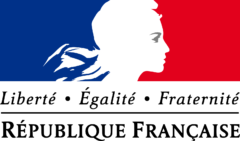3 questions to Geoffroy Dhellemmes from France Pelagique
Each month, find out more about our members in 3 questions! This month, Geoffroy Dhellemmes from France Pélagique, answers our questions.
Quelle est votre activité ?
Les 2 chalutiers de l’armement pêchent et surgèlent à bord des poissons dits pélagiques : hareng, maquereau, chinchard, merlan bleu. Un poisson est appelé pélagique lorsqu’il vit dans les eaux proches de la surface ou entre la surface et le fond. La plupart des poissons pélagiques sont grégaires, ce qui signifie qu’ils vivent en groupe et nagent en bancs concentrés. Des plans de gestion durable et responsable régis par la Commission Européenne, encadrent leur capture (zones de pêche, quotas, interdiction totale des rejets).
Les espèces pélagiques parcourent souvent de longues distances et migrent à différentes périodes de l’année du nord au sud, autour de l’Irlande, de l’Angleterre, de l’Écosse, en
What is your area of business?
The 2 trawlers of the company fish and raise on board fish called pelagic: herring, mackerel, horse mackerel, blue whiting. A fish is called pelagic when it lives in waters close to the surface or between the surface and the bottom. Most pelagic fish are gregarious, which means they live in groups and swim in concentrated schools. Sustainable and responsible management plans governed by the European Commission, regulate their catch (fishing zones, quotas, total ban on discards).
Pelagic species often travel long distances and migrate at different times of the year from north to south, around Ireland, England, Scotland, in the Channel and in the Bay of Biscay.
France Pelagique uses simple pelagic trawls, towed by a single vessel. The trawl moves in the open water, between the surface and the bottom, without being in contact with the bottom.
Wild caught fish in general and pelagic fish in particular, such as herring and mackerel, have one of the lowest CO2 footprints compared to any other animal protein.
Who are your products/services aimed at?
Frozen pelagic fish at sea has a very low market value per kilo compared to demersal species, especially the so-called "noble" species. The demand on the French and, more widely, European markets is low.
Pelagic fish represent an inexpensive source of protein, and as such they meet a real and sustained demand from international markets (African, European and Asian markets in particular).
Our fish is thus exported worldwide, via the Netherlands (a well-known and recognized hub for the sale of pelagic species).
In 2021, FP has joined forces with Sepoa-Delgove, a sausage-making company in Fécamp, to revive a 100% French herring industry: fished by French crews, on boats flying the French flag, processed in France, and offered to French consumers via French distribution networks.
Why are innovation and research important in your business?
Whether it is the engines of our vessels, their refrigeration systems, or fishing gear, innovation allows us to reduce the footprint of our activities on ecosystems (smaller carbon footprint, increased selectivity of catches...).
The equipment on the bridge and in the factory, which innovation is making ever more ergonomic, makes it possible to reduce the arduousness of the jobs on board and to reinforce safety, which is a constant concern for us.
The quality of the fish offered to consumers benefits from the innovations made at the plant in terms of sorting and freezing processes.
The vessel also provides the research community with valuable data to better understand and respect the fishing environment, both the resource and the surrounding ecosystems, by welcoming observers on board during the fishing campaigns, and by sharing field observations (such as changes in seasonal migrations and spawning areas)
For more information, visit this member's page!




